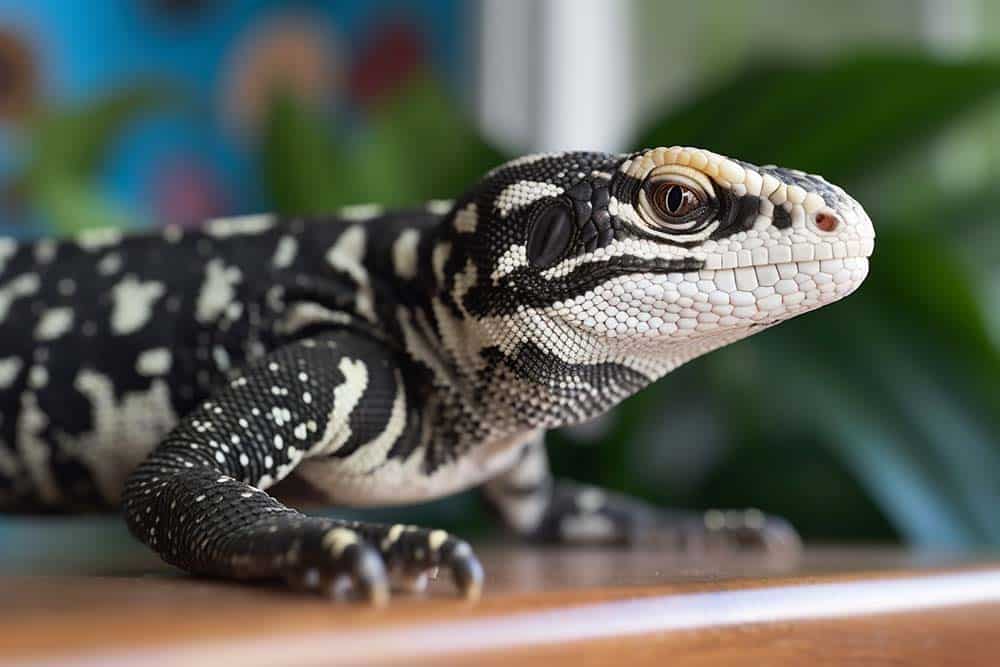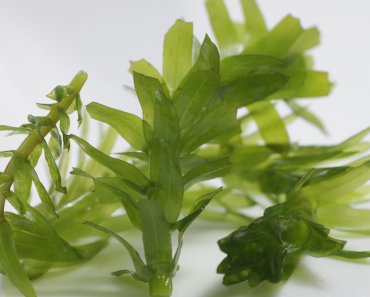
The Unique Dietary Needs of Tegu Lizards
Tegu lizards have become popular pets due to their docile nature and fascinating personalities. However, many new tegu owners are unaware of the dietary requirements that these unique animals have. In the wild, tegus are omnivorous and consume a wide variety of foods including insects, fruits, vegetables, and small mammals.
Therefore, it is important to provide a balanced diet in captivity as well. A healthy tegu lizard diet should consist of both animal protein and plant matter.
The optimal ratio varies depending on your individual lizard’s age, gender, activity level, and overall health status. Juvenile tegus require more protein than adults because they are growing rapidly.
Females also require more protein during the breeding season to support egg development. It is important to note that tegus can develop nutritional deficiencies if they do not receive proper nutrition.
Symptoms of deficiencies include weight loss, lethargy, abnormal behavior and shedding problems. Therefore feeding your pet with a balanced diet is critical for their overall health.
What Do Tegu Lizards Eat?
In the wild Tegus consume a diverse range of food sources like insects such as crickets or mealworms which provide vital proteins necessary for muscle growth and overall strength. They also eat small mammals or rodents like mice or rats for additional protein intake along with vegetables and fruits for carbohydrates.
A captive tegu lizard’s diet should consist mainly of high-quality proteins such as chicken breast or ground turkey mixed with calcium-rich greens like kale spinach collard greens turnip greens etc., which help in maintaining good bone health in your pet. Berries like strawberries or raspberries could be given occasionally as treats which are rich in antioxidants while carrots could be fed safely once in a while to supplement Vitamin A in their diet.
How Much Should You Feed Your Tegu Lizard?
The amount of food a tegu lizard requires depends on several factors such as age, gender, and activity level. Juvenile tegus will require more frequent feedings than adults since they are still growing and need more calories. Adult tegus are less active than juveniles so their calorie requirements are lower.
As a general guideline, adult tegus should be fed 1-2 times per week with portion sizes ranging from 5-15% of their body weight. Juvenile tegus should be fed more frequently with smaller portions.
It’s important to monitor your lizard’s weight and adjust feeding accordingly. Overfeeding can lead to obesity and health problems whereas underfeeding can result in malnutrition and stunted growth.
Preparing Food for Your Tegu Lizard
Creating a balanced, nutritious diet for your pet is essential for their health but it can also seem overwhelming at first. Preparing food for your tegu lizard involves sourcing high-quality ingredients that provide the necessary nutrients and preparing meals that are both appetizing and digestible.
A balanced diet should consist of fresh vegetables such as squash or sweet potatoes mixed with high-quality proteins like chicken breast or turkey mince to provide ample nutrition for your pet. It is important to vary the type of protein sources you use in order to provide a diverse range of amino acids which are necessary building blocks for healthy muscle growth.
It is also essential to dust all protein sources with calcium powder before feeding as this helps maintain good bone health by preventing metabolic bone disease which could be fatal if left untreated. Taking time to prepare healthy meals ensures that your pet receives optimal nutrition while also providing opportunities for socialization through mealtime interactions between you and your animal friend.
What do Tegu Lizards Eat?
Tegu lizards are omnivorous, meaning they eat both animal and plant-based foods. In the wild, tegus eat a variety of insects, small mammals, birds, and eggs as well as fruits and vegetables.
As pets, it’s important to provide a balanced diet that meets their complex nutritional needs. Here are some common foods you can include in your tegu lizard’s diet:
1. Protein: Tegus need plenty of protein for healthy growth and development. Some great sources of protein include chicken (cooked), ground turkey (cooked), lean beef (cooked), quail eggs (hard-boiled), silkworms, hornworms, or Dubia roaches.
2. Vegetables: A varied selection of colorful vegetables is essential for providing vitamins and minerals that support tegu health. Some veggies that work well for tegus include kale, mustard greens, collard greens, beet greens, turnip greens, butternut squash and sweet potatoes.
3. Fruit: While fruit should not be the primary component of a tegu’s diet because it contains sugar which may lead to obesity or other health problems if given excessively; it can still offer great nutritional value if consumed in moderation.
Good choices include bananas apples and blueberries.
4. Calcium sources: Tegus require high levels of calcium to maintain strong bones and avoid metabolic bone disease as they grow older: Offer calcium supplements such as powdered eggshell or cuttlebone 2-3 times per week along with their food. By offering a varied diet consisting of these foods mentioned above you will ensure your pet is receiving adequate nutrition to keep them healthy.
The Importance Of Balanced Nutrition
Providing a varied diet is essential for maintaining good health in a tegu lizard. Like us, they need a balanced diet consisting of protein, vitamins, minerals and healthy fats. A lack of any key nutrients can lead to health problems such as bone disease or developmental issues.
Tegus require a lot of protein which is why it’s important to provide them with an ample source of animal proteins like chicken and beef. Fresh fruits and vegetables should also be offered daily for the nutritional value they bring to the table.
Calcium supplementation is another critical component because tegus require high amounts for healthy bone growth and development. It’s important to ensure that all food items are appropriately sized for your pet so that they can easily digest everything without any issues.
Choosing The Right Proteins
When selecting protein sources for your tegu lizard, you want to avoid anything too fatty or processed. Feed them fresh meat options such as chicken breast or lean cuts of beef over something like deli meat which may contain preservatives. In addition, live insects are also believed to promote better overall health than dead ones; worms are a great choice since they have low-fat content but high-protein content that will help keep your pet healthy.
The Benefits Of Vegetables And Fruits
Vegetables and fruits are an essential part of any diet including that of Tegu Lizards because they contain many vital vitamins necessary for good health such as vitamins A & C. Sweet potatoes are another excellent option since they’re packed with fiber while being low in fat: 1 medium sweet potato contains 4 grams fiber while only having 0g fat!
How much should you feed your tegu lizard?
Feeding your tegu lizard can be a bit tricky, as their dietary needs vary depending on their age, size, and activity level. Factors such as gender and overall health can also affect how much they should eat. As a general rule of thumb, it’s best to monitor your pet’s weight and adjust their diet accordingly.
Factors that affect how much a tegu should eat
One of the most important factors that affects how much a tegu should eat is their age. Younger lizards require more protein and calcium than adults do, while adult lizards need more fiber in their diet to maintain digestive health. Another factor to consider is the size of your tegu.
Smaller lizards will obviously require less food than larger ones, but even among adult lizards, there can be significant variations in appetite. Plus-sized or overweight lizards may need to have their diets restricted to prevent obesity-related health issues.
Activity level is another important consideration when determining how much to feed your tegu. Lizards that are more active will burn more calories and require more food than those that lead a sedentary lifestyle.
Guidelines for feeding frequency and portion size
It’s generally recommended that adult tegus be fed every other day, while young lizards may need to be fed daily. However, these guidelines are not set in stone – you may need to adjust feeding frequency based on your pet’s individual needs. When it comes to portion size, as mentioned earlier, it’s best to monitor your pet’s weight and adjust accordingly.
A general rule of thumb is that each meal should consist of about 10% of the lizard’s body weight in food (e.g., if your lizard weighs 1 kilogram, each meal should consist of roughly 100 grams of food). You can split this into smaller servings if you prefer, but be sure to monitor your pet’s intake so they don’t overeat.
Overall, feeding your tegu lizard a healthy and balanced diet is essential for their long-term health and well-being. By considering these factors and following some basic guidelines, you can ensure that your pet gets the nutrition they need to thrive.
Preparing food for your tegu lizard
Tips for sourcing high-quality ingredients
One of the most important things you can do for your tegu’s diet is to ensure that the food you feed it is of high quality. This means choosing fresh, whole foods that are free from any harmful chemicals or additives.
Some great sources of high-quality ingredients include local farmers’ markets, organic grocery stores, and even your own backyard garden. When selecting vegetables and fruits, be sure to choose a variety of colors and textures to provide a range of nutrients.
Dark leafy greens like kale and collards are excellent sources of calcium, while brightly colored fruits like berries and mangos provide antioxidants. For protein sources, select lean meats like chicken breast or turkey.
Avoid fatty cuts of meat as these can lead to health issues in your tegu over time. You can also offer small amounts of eggs or low-fat dairy products as additional sources of protein.
Techniques for preparing meals that are nutritious and appealing to your pet
While nutritional content should be your top priority when preparing meals for your tegu, presentation is also important. Tegus are visual animals who appreciate colorful and visually appealing meals just as much as humans do.
One way to make mealtime more interesting is by offering a variety of textures in each meal. For example, you could mix chopped veggies with ground meat or chopped hard-boiled eggs for added texture appeal.
Another tip is to vary the way you prepare each ingredient so that your tegu doesn’t get bored with its meals. Try steaming or roasting vegetables instead of always serving them raw, or lightly season meats with different herbs and spices for added flavor.
Consider investing in a food processor so that you can easily chop ingredients into small pieces that are easier for your tegu to eat. By taking the time to prepare nutritious and visually appealing meals, you’ll be helping to ensure your tegu has a healthy and satisfying diet.
Supplementing your Tegu’s Diet
Overview of Common Supplements Used in a Tegu’s Diet
While a tegu’s diet should consist primarily of whole foods, supplements can be an important addition to ensure they are receiving all necessary nutrients. Here are some common supplements used in a tegu’s diet: Calcium: Many tegus require additional calcium to support healthy bone growth and development.
Calcium can be provided in the form of powder, liquid, or cuttlebone. Vitamin D3: Vitamin D3 is crucial for calcium absorption and many reptiles do not produce enough naturally.
A good source of vitamin D3 is UVB lighting. Multivitamins: A multivitamin supplement can help ensure your tegu is getting all necessary vitamins and minerals.
It is important to note that while supplements can be helpful, they should not replace whole foods in the tegu’s diet. Always consult with a veterinarian or experienced reptile keeper before adding any supplements to your pet’s diet.
Discussion of When and How to Use Supplements Safely
Supplements should only be given when necessary as over-supplementing can lead to health issues such as metabolic bone disease. It is recommended that you have your tegu checked by a veterinarian who specializes in exotics before adding any supplements to their diet. The vet can run bloodwork and assess if any deficiencies are present.
When providing calcium powder or liquid, dust food items with a pinch or two before feeding them to your tegu. Cuttlebone can also be placed in their enclosure for them to nibble on as needed.
Vitamin D3 from UVB lighting should be provided for at least 12 hours per day depending on the type of bulb used and the distance from it that your lizard prefers. Multivitamins can be added to food items in the same manner as calcium powder.
It is important to keep in mind that supplements are not a substitute for a varied and balanced diet of whole foods. Be sure to monitor your tegu’s health and consult with a veterinarian if you have any concerns about their diet or supplementation.
Foods to Avoid Feeding Your Tegu Lizard
A tegu lizard’s diet should consist primarily of high-quality protein, fruits, and vegetables. However, there are certain foods that should be avoided because they can be harmful or toxic to your pet. Here are some of the top foods you should never feed your tegu:
Avocado
Although avocados are a healthy superfood for humans, they can be extremely dangerous for reptiles like Tegus. Avocado contains persin, a toxin that can cause heart damage and respiratory problems in lizards.
Onions and Garlic
Onions and garlic contain compounds that can damage red blood cells in reptiles. This can lead to anemia and other serious health problems over time.
Rhubarb
The leaves of the rhubarb plant contain oxalic acid, which can cause kidney failure in tegus if consumed in large enough quantities. Additionally, the stalks are high in sugar, which is not good for a lizard’s digestive system.
Insects Caught Outside
Tegus will happily eat insects found outside such as crickets or grasshoppers. However, this is something you want to avoid at all cost! Insects caught outside may carry parasites or diseases that could harm your tegu lizard. It is always best to purchase insects from a reputable vendor.
In addition to these foods, there are many other items you should avoid feeding your pet tegu lizard unless advised specifically by a veterinarian with experience treating reptiles. By sticking with a nutritious and well-rounded diet of safe foods along with supplements as needed, you’ll help ensure that your pet stays healthy and happy for years to come!
Conclusion
Feeding Your Tegu Lizard: A Recipe for Success
Feeding your pet Tegu lizard is an important responsibility that should not be taken lightly. By providing a well-balanced and varied diet, you can ensure your Tegu receives all the nutrients it needs to thrive. Make sure you include a variety of protein sources, fruits and vegetables to mimic their natural diet in the wild.
Caring For Your Tegu Lizard
In addition to feeding your Tegu lizard a healthy diet, it is important to provide them with proper care and attention. This includes regular veterinary checkups, maintaining proper temperatures and humidity in their enclosure, providing adequate space for exercise, and spending quality time with your pet.
Safety First
Although there are many foods that are safe for tegus to consume, it is important to do research before offering any new food items. Some common household foods may be harmful or toxic to reptiles like Tegus. It’s always better safe than sorry where their health is concerned.
A Happy And Healthy Companion
By following these guidelines on feeding and caring for your pet Tegu lizard, you can ensure they will live a long and healthy life as a beloved companion. Always remember that providing high-quality nutrition along with affectionate care will result in a happy tegu lizard who will reward you with years of amazing companionship. So go ahead and enjoy the company of your new scaled friend!


























